Many thanks to SWLing Post contributor, Carlos Latuff, who recently shared a number of Radiofax images of Typhoon Khanun he’s decoded over the past few days–apologies as I’ve been traveling and could not post when received. Carlos writes:
Attached is a satellite image broadcasted today by Japanese meteorological agency via radiofax (7795 kHz USB), and received by me in Porto Alegre, Brazil, at 19h10 UTC.
Even with image quality compromised by the signal, it’s possible to spot powerful typhoon Khanun, approaching Okinawa, with winds of 220 km/h.
Receiver is a Xhdata D-808 with loop antenna, signal decoded by HF Weather Fax app.
Also:
Tropical cyclone forecast broadcasted today by Japanese meteorological agency via radiofax (7795 kHz USB), received in Porto Alegre, Brazil, at 19h50 UTC.
Typhoon Khanun is approaching Okinawa, with winds of 220 km/h.
In addition:
Radiofax (detail) from the meteorological agency of Japan, received today at 19:50 UTC in Porto Alegre, frequency 7795 kHz (USB). In the circle, position of the powerful typhoon Khanun, in southern Japan.
Thank you for sharing these, Carlos. It’s amazing that with such simple equipment we can track and download weather events and imagery like this. Pretty amazing!

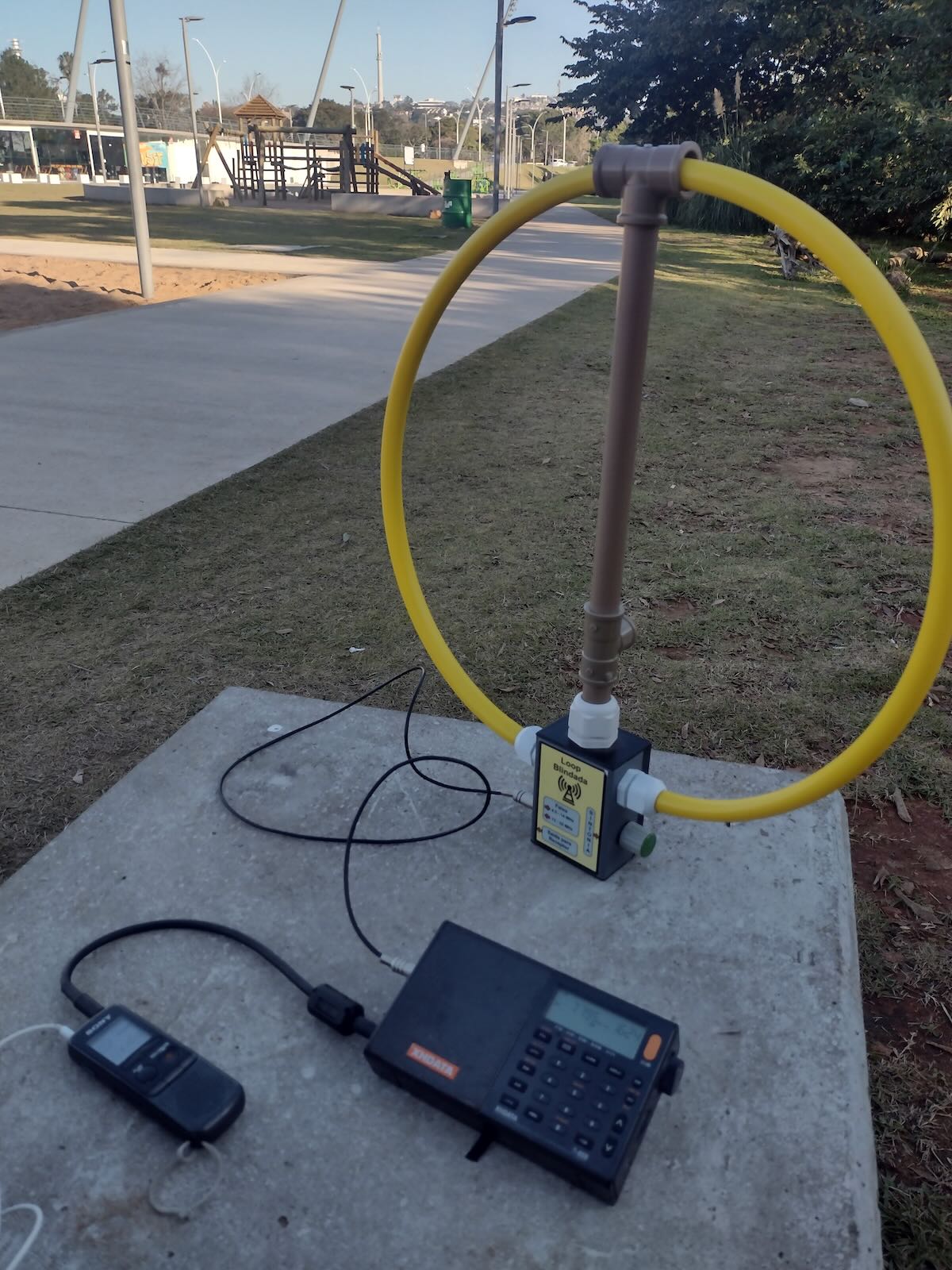
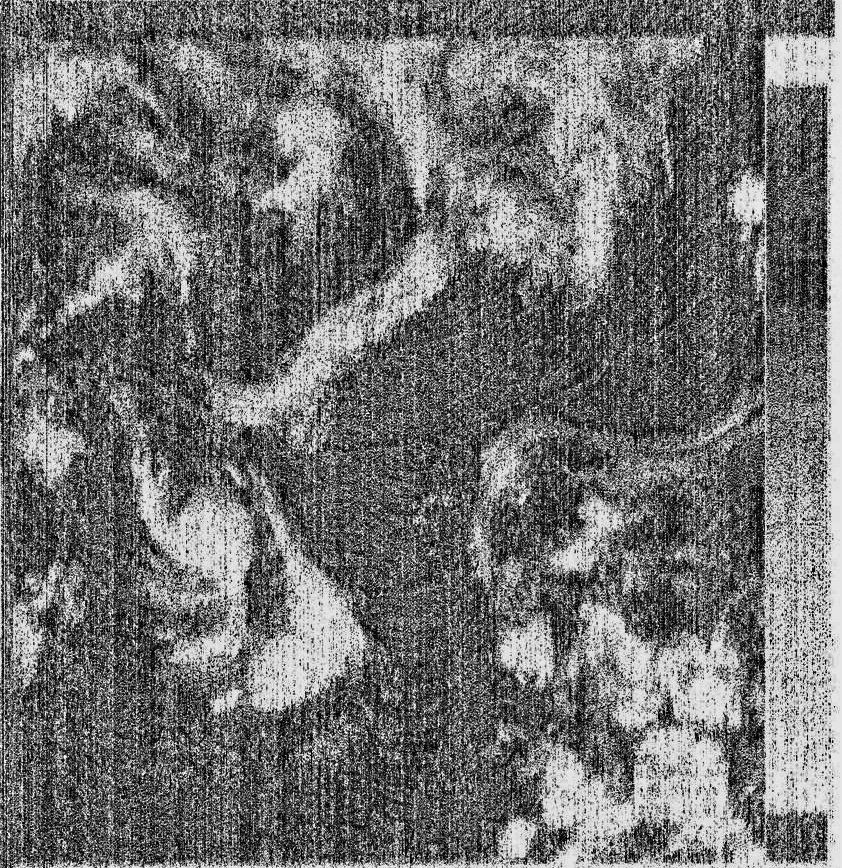
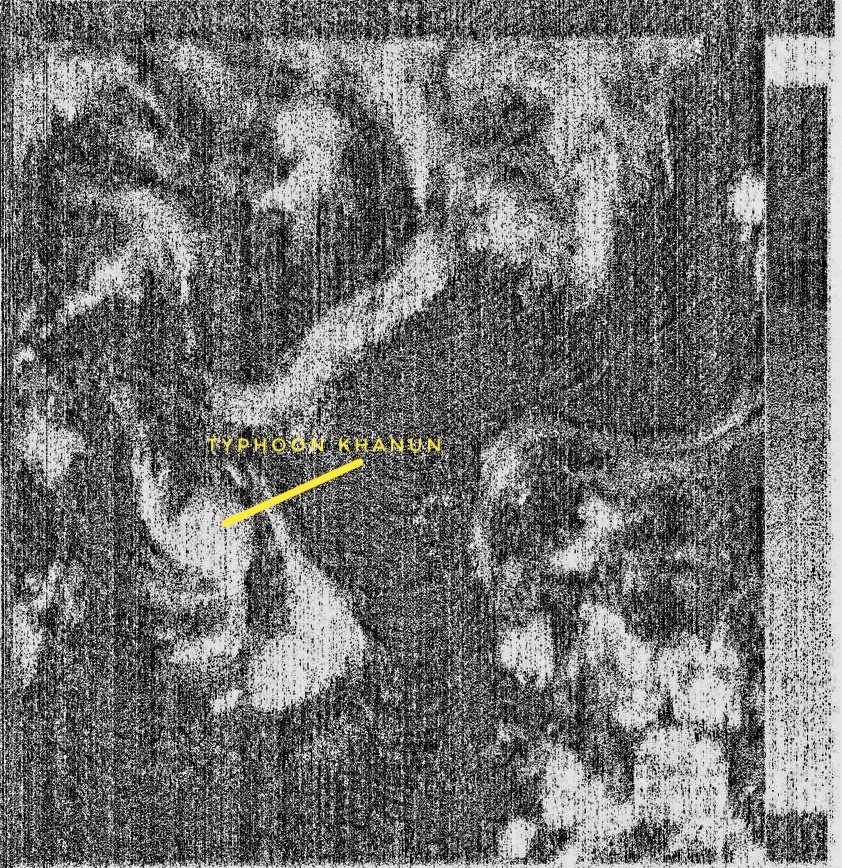
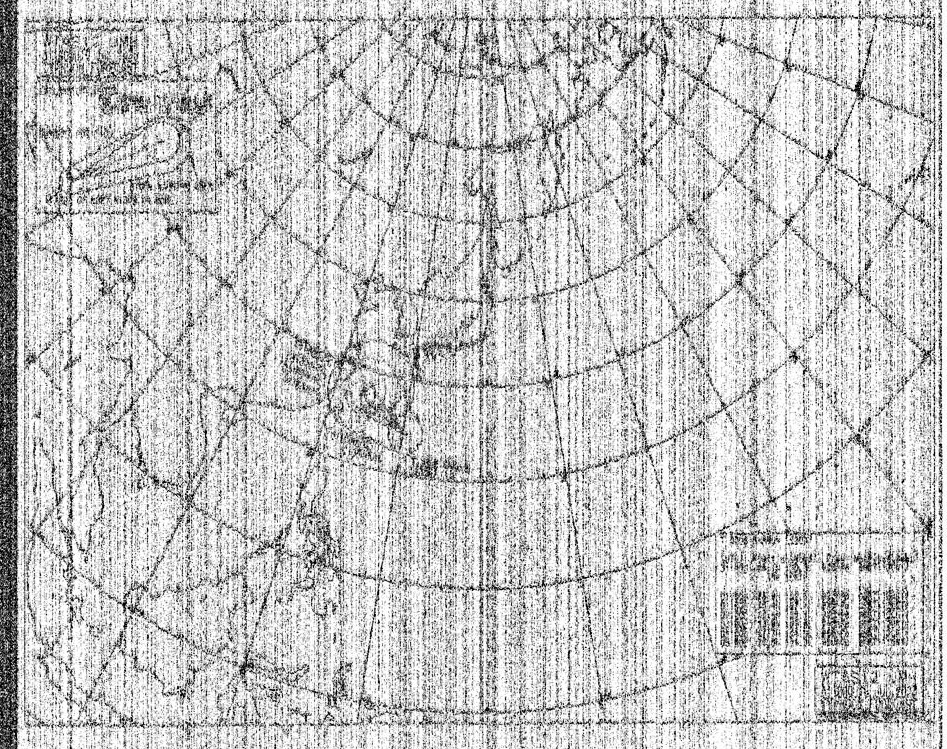
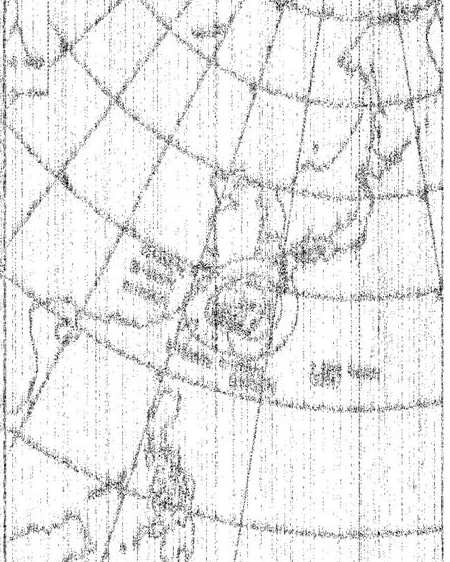
Carlos, which loop is that? Who makes it?
Thanks…Mike
Hello Mike,
It’s a loop antenna made by a ham radio operator in Brazil and given to me as a gift.
Well done Carlos!
It is great when you can eek out an image from a noisy fax signal – especially from so far away and of such a newsworthy event!
Indeed, Neil, it’s like turning back the clock when I used to have a fax machine in my home.
🙂
Thanks,
It looks like the HF path from Japan to Brazil was around 19 000 km so noise looks as if it was a problem which is not suprising.
Compare it with the images in https://gge.ext.unb.ca/test/SWL/2018-0568a%20DRM%20REPORT%20final%20PDF%20UDI%201732.pdf
Mangosman
If they were broadcasting using DRM – as you seem to be suggesting here- instead of “good old” analogue FAX, then , becasue of the “all or nothing” effect with digital broadcasting, Carlos would have got nothing due to the propagation challenges.
When it comes to audio too, I rather a bit of noise that the sudden & random “stop & start” you get with DRM when the signal is not 20db over9 🙂 An any form of multi-pathing destroys it too
Neil,
Did you look at the coverage maps are in the report?
I have heard a side by side comparison of AM and DRM at the same power where the receiver is in a noisy AM location, the DRM was decoded reliably. Remember in AM 67 % of the radiated power is the carrier which contains no data. If SSB is used, the carrier is suppressed prior to the transmitter’s power amplifier. The problem with SSB is that the carrier must be recreated in the receiver at exactly the carrier frequency used in the transmitter. DRM has no carrier either, it contains some pilot signals which the receiver uses to adjust it’s local oscillator. In addition DRM can overcome the phasing effects of multiple reflections from the ionosphere. I have been listening to the BBC from 4000 km regularly and the reception is like having the transmitter next door!
DAB+ also does the same thing and I was were it became unreliable , the FM had no stereo and was hissy.
The TV you watch is digital but most broadcasters make sure there is a sufficiently powerful signal. Do you know anyone who wants to go back to analog TV who is not a technological historian?
No need to apologize, my good Thomas. You are always publishing my radio stuff, thanks a million for your kindness.